Entering students early for GCSEs is leading to lower grades in the two subjects where the tactic is most commonly used, a study has concluded.
Last year 28,320 candidates were entered at least a year early for their English literature GCSE, with 17,309 in religious studies.
New analysis suggests that in English literature the decision led to lower grades, on average, than the candidates would have got if they were entered in Year 11 - for every ability group.
Pros and cons: What does early GCSE entry do for student achievement?
GCSEs 2019: Progress 8 driving early entries in English
News: Early entries skew grades in core subjects
Related: ‘GCSE resits change lives, but there must be another way’
And the same was true in the vast majority of ability groups for religious studies, according to the Department for Education study.
But in statistics there were 8,644 early entries, which for most ability groups resulted in higher average grades.
GCSEs: Are early entries a good idea?
These three subjects had by far the highest number of early entries last year, the study shows.
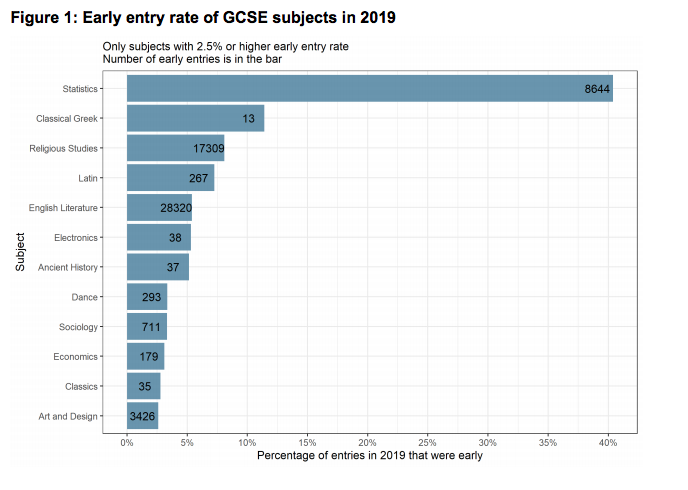
Researchers reached their conclusions by grouping candidates into 34 different bands of prior attainment according to Year 7 Sats results.
Grades for early entries were then compared at every band with those achieved by Year 11 entries in each of the three subjects.
Early entries were least likely to benefit English literature candidates.
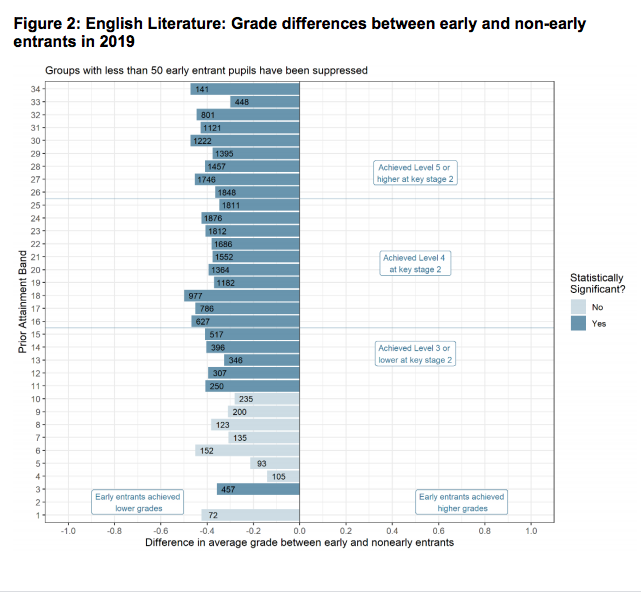 The tactics also looked ill-advised for most religious studies students.
The tactics also looked ill-advised for most religious studies students.
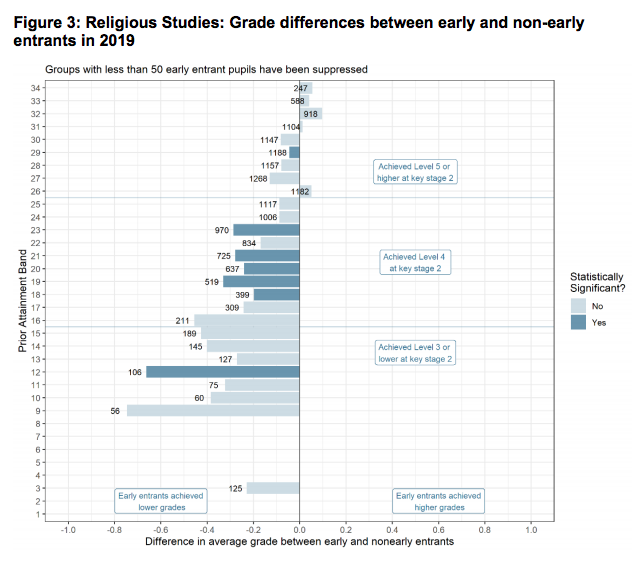 In statistics, the situation is reversed. But this is likely to be a result of the high ability profile of those selected for early entry in this subject, rather than any actual boost from early entry.
In statistics, the situation is reversed. But this is likely to be a result of the high ability profile of those selected for early entry in this subject, rather than any actual boost from early entry.
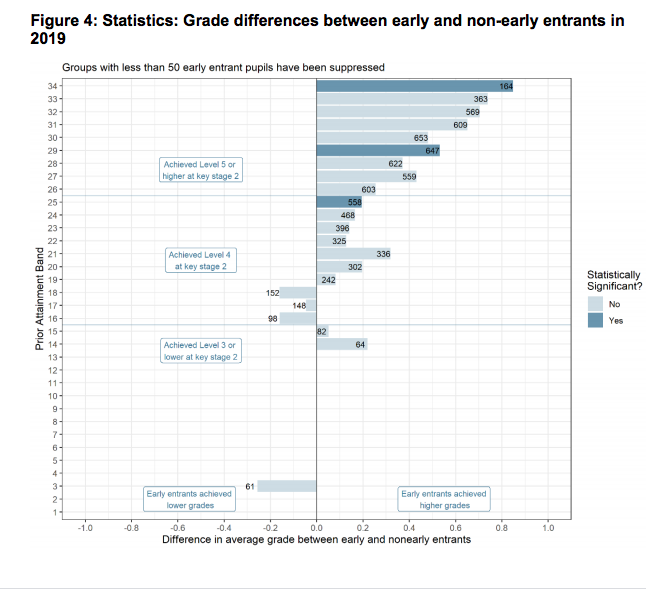
A Department for Education spokesperson said: “Early entry to GCSEs does not always benefit pupils, as they tend to achieve lower grades than those who take exams at the end of Year 11, and schools should consider these findings when deciding exam entries in future.”
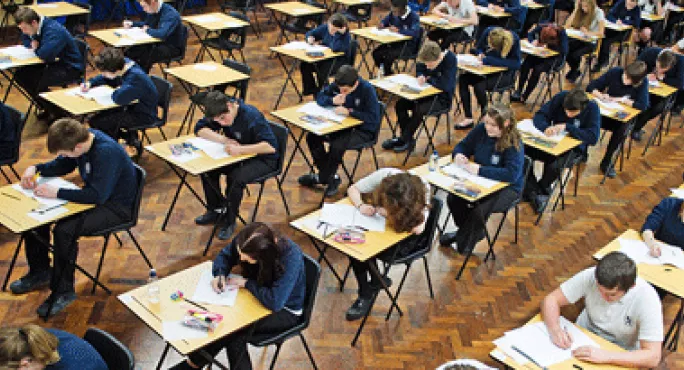

 The tactics also looked ill-advised for most religious studies students.
The tactics also looked ill-advised for most religious studies students. In statistics, the situation is reversed. But this is likely to be a result of the high ability profile of those selected for early entry in this subject, rather than any actual boost from early entry.
In statistics, the situation is reversed. But this is likely to be a result of the high ability profile of those selected for early entry in this subject, rather than any actual boost from early entry.



